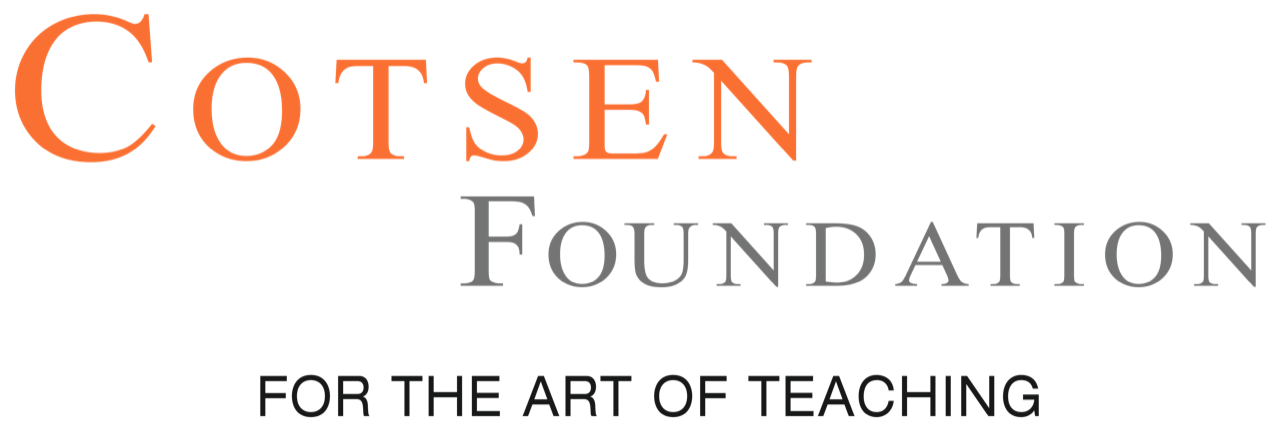By Judy Johnson, Executive Director, Cotsen Foundation for the ART of TEACHING
Every parent and policymaker, every union-basher and union-backer, wants every kid to be taught by an effective teacher. If effective teaching is defined primarily by student achievement on standardized tests, then this goal is good, but not good enough. Current standardized tests do not measure the kinds of knowledge and skills our kids need to master to thoughtfully participate as citizens at home or to compete with their peers abroad. To “win the future,” kids should have learning opportunities that help them grow into adults with deep levels of knowledge who can learn independently, work cooperatively, and think critically. This will require not just effective teaching, but teaching excellence.
But teaching excellence will not happen just because someone demands it. Its development will require more than accountability carrots and sticks. A whole system needs to be designed that ensures our teachers are capable of providing the highest levels of teaching – a level of teaching excellence that results in sophisticated learning and achievement by students.
Such a system begins by being selective about who is accepted into the teaching profession and recruiting the very best. Those who are accepted should be rigorously prepared before they enter the classroom so that they are not foundering during their first few years on the job. There are many good models of teacher preparation, including long-term residency programs with paid apprenticeships, which we can emulate.
Next, the system can give teachers the opportunity to work on their craft throughout their careers. All teachers should have ongoing education to deepen their knowledge of the subjects they teach and how children learn. They will advance with continuous training, time to test out new approaches, and meaningful assessment and feedback that informs their development and strengthens practice. Teachers also need to talk and work with other teachers over time, in positive collaborative ways, so they can learn from and support each other. Collaborative learning can create a work environment in which teachers are comfortable trying new approaches, taking risks, and sometimes temporarily failing, so that they can get even better. In short, teachers deserve the kind of learning environments we want for our kids.
Finally, and perhaps most essentially, we ought to consider how we treat teachers. We cannot continue to undermine the public standing of the profession and expect quality performance from educators. We should be treating teachers with greater respect because their work requires extensive knowledge and great skill. Furthermore, it is only by appreciating the complexities of the teaching profession that we can mobilize the efforts of those who do the work in the classroom to reach for something better. It is the classroom teacher who will have to aspire to professional excellence, and it is the individual teacher who will devote the extra time and effort teaching excellence requires.
Teach for America and others have demonstrated the impact rigorous teacher selection can have on students, and the Boston residency program and New Teacher Center have strong models for teacher preparation and new teacher induction, respectively. At the Cotsen Foundation for the ART of TEACHING, where our mission is the development of gifted teachers, we have seen capable educators become exemplary teachers. They stepped out of their comfort zones to add different teaching methods. They raised their expectations for what children could learn, and then, increased the challenge and substance of learning tasks they presented to students. These teachers became exceptional first by seeing what other great teachers achieve with their students. They followed a path to professional success through hard work, extensive training, mentoring and feedback, collective learning with colleagues across their schools, and a commitment to be the best they could be. Other teachers can do the same.
We can create a teaching force led by excellent teachers such as those we have seen go from good to great in their profession. We can do that with a complete and quality system of selection of teaching candidates, extensive preparation for new teachers, and continuous professional development for the experienced educator aimed at setting and achieving substantive learning for children.
I believe that teachers aspire to excellence naturally. But, as a nation, we have not asked them to do so, and we have not provided the environment or resources to help. We have set the bar too low. By treating teachers with respect and by providing teachers the opportunity to learn in collaborative environments with meaningful support, we can create excitement, energy and enthusiasm about teaching that is contagious, and that sets the bar high for expectations for all teachers. We can help all teachers reach for excellence.


What a terrific article- it inspires me to become a stronger instructional coach for teachers.